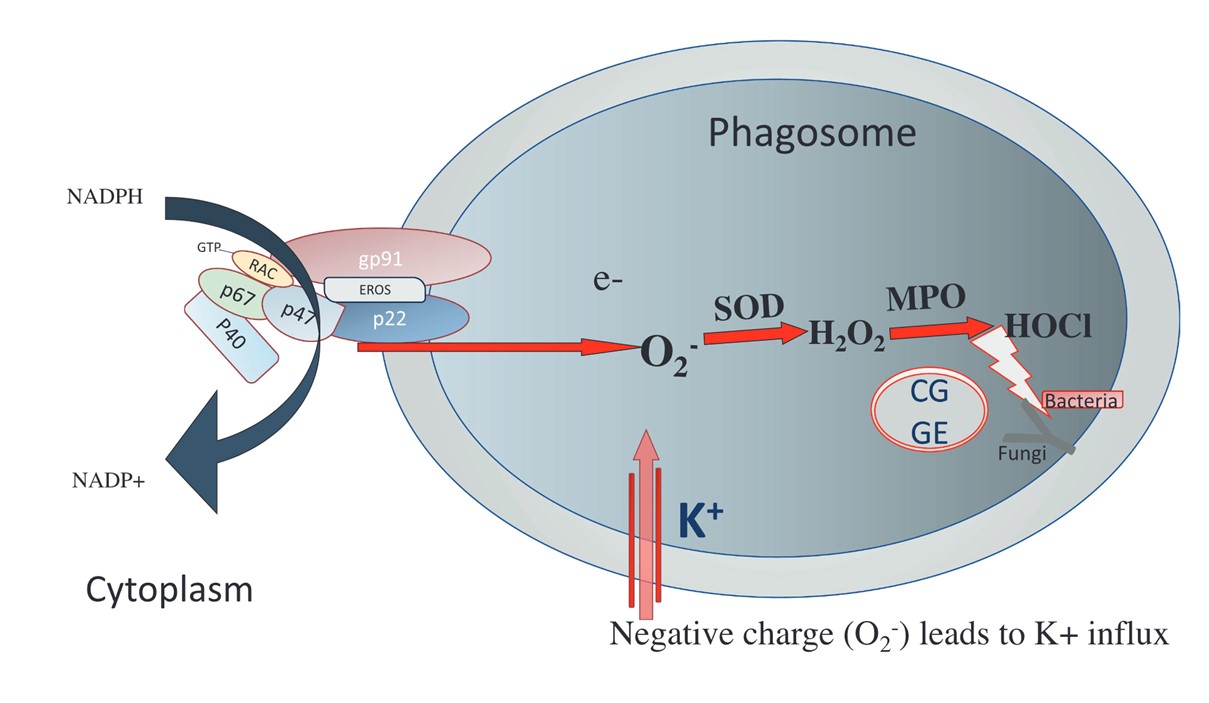Chronic Granulomatous Disease (CGD)
- Home
- Solutions
- By Diseases
- Accessory Digestive Gland Diseases
- Chronic Granulomatous Disease (CGD)
Chronic granulomatous disease (CGD) is a rare genetic disorder characterized by a defect in the immune system that impairs the body's ability to effectively fight off certain types of bacterial and fungal infections. Understanding the intricate mechanisms underlying CGD is essential for developing effective therapeutic strategies and improving outcomes for individuals. In the realm of rare gastrointestinal disease mechanism research and therapeutic development, our company stands at the forefront with a wealth of experience and robust technical support. We can offer innovative research programs and comprehensive services to further the advancement of therapeutic strategies.
Chronic granulomatous disease (CGD) is a rare primary immunodeficiency disorder characterized by an impaired phagocytic function within the innate immune system. This genetic condition is not only infrequent, with an incidence of approximately 1 in 200,000 individuals, but it also primarily affects children. The immune system of individuals with CGD is unable to produce reactive oxygen species, which are necessary for killing certain types of bacteria and fungi (Fig.1). As a result, those with CGD are susceptible to recurrent and severe infections.
 Fig.1 The role of NADPH complex. (Zerbe, C. S., and Holland, S. M., 2024)
Fig.1 The role of NADPH complex. (Zerbe, C. S., and Holland, S. M., 2024)The primary cause of CGD is mutations in genes that encode for the components of the nicotinamide adenine dinucleotide phosphate (NADPH) oxidase enzyme complex. This complex is responsible for producing reactive oxygen species that play a crucial role in the immune system's ability to kill certain types of bacteria and fungi. Mutations in any one of the genes encoding for the NADPH oxidase complex can result in CGD (Fig.2).
 Fig.2 Illustration of the NADPH oxidase complex subunits (OEC). (Justiz-Vaillant, A. A., et al., 2023)
Fig.2 Illustration of the NADPH oxidase complex subunits (OEC). (Justiz-Vaillant, A. A., et al., 2023)Diagnosing CGD involves a series of diagnostic tests, including assessments of neutrophil superoxide production and genetic testing to confirm the presence of the disease. The sequencing of the individual's phox gene are crucial step in diagnosing and determining the molecular defects associated with CGD. Techniques like next-generation sequencing (NGS), Sanger sequencing, and gene scan analysis are instrumental in identifying the specific genetic mutations responsible for CGD.
Our company has advanced technologies and skilled professionals in rare gastrointestinal disease research, like CGD. We offer valuable services aimed at understanding the disease's mechanisms and developing improved diagnostic and therapeutic strategies, including the development of animal models, therapeutic platforms, and diagnostic methods.
The animal models provide valuable insights into the disease mechanisms and can be used to study potential therapeutic strategies. Our company can offer various chemical complexes or gene editing techniques to create an animal model of CGD.
| Chemical-induced Models | |
| There are several animal models of CGD that are formed using drugs or chemical treatments, such as diphenyleneiodonium (DPI) and apocynin. These models are typically created by inducing specific mutations or inhibiting essential proteins involved in the oxidative burst pathway. | |
| Optional Models | DPI, Apocynin |
| Genetically Engineered Models | |
| Various gene editing techniques have been used to create mouse models with mutations in the genes associated with CGD. One common gene that is targeted in the creation of animal models of CGD is the CYBB gene, which encodes the gp91phox subunit of the NADPH oxidase enzyme. Mutations in the CYBB gene are responsible for the X-linked form of CGD, which is the most common form of the disease. | |
| Optional Models | gp91phox-/-(CYBB-/-) model, p47phox-/- model |
| Optional Species | Mice, Rats, Zebrafish, Others |
With a commitment to pushing boundaries and exploring new frontiers in rare gastrointestinal disease research, our company can provide tailored solutions with innovation and expertise to support your pharmacokinetics study and drug safety evaluation.
No matter what stage of research you are at, we can provide you with corresponding research services. If you are interested in our services, please feel free to contact us for more details and quotation information of related services.
References
All of our services and products are intended for preclinical research use only and cannot be used to diagnose, treat or manage patients.